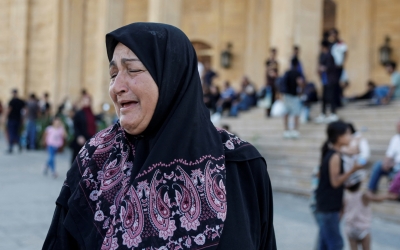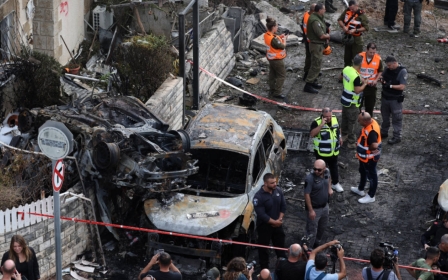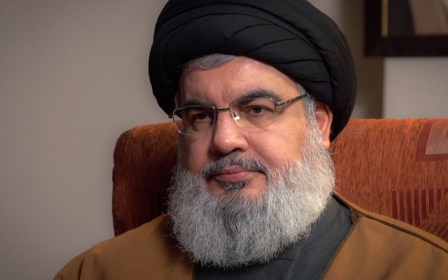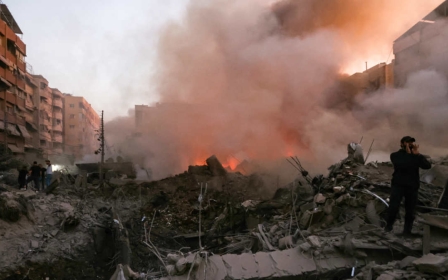Hezbollah dealt a painful blow but can 'reorganise' after Nasrallah killing
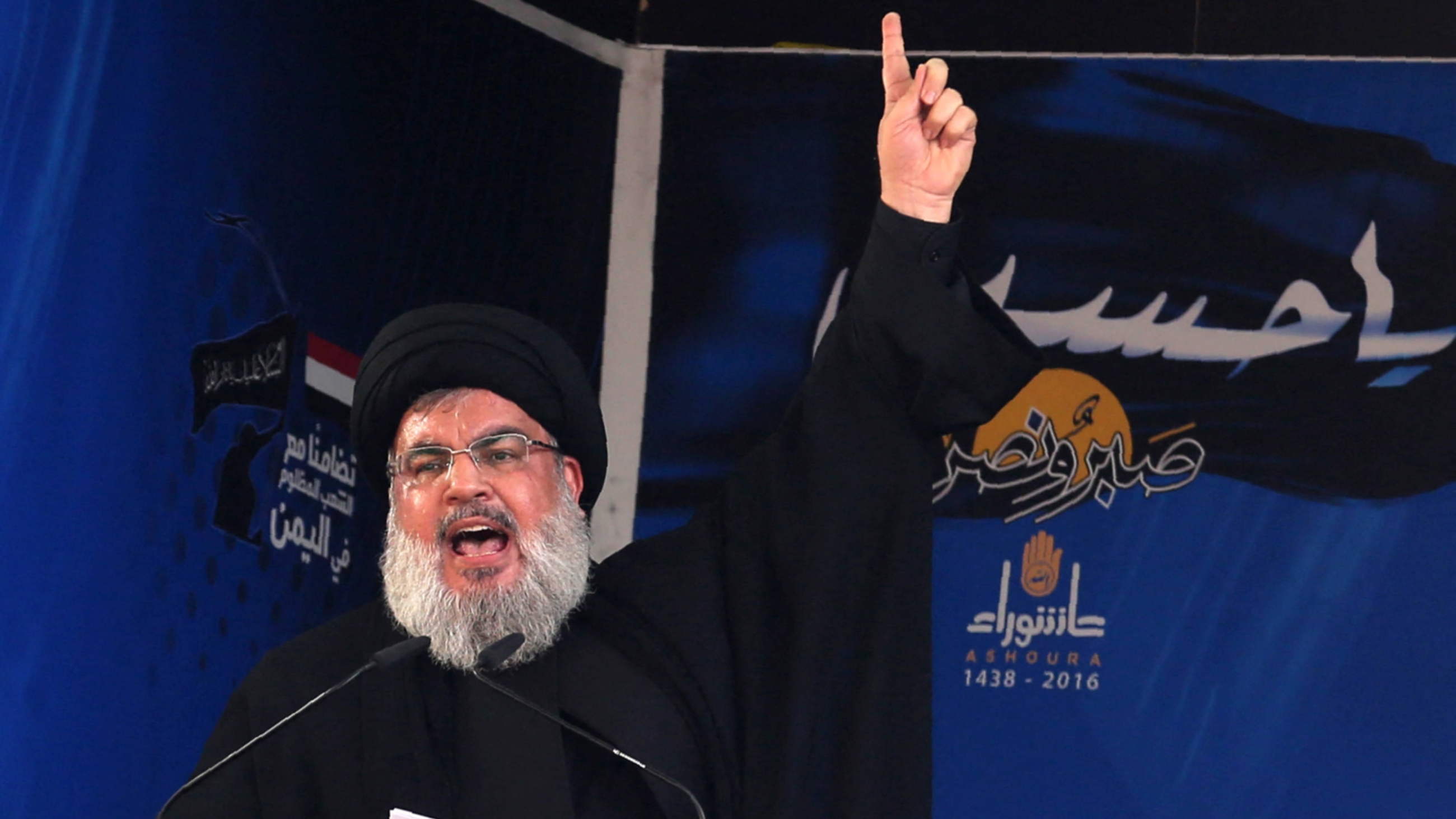
Israel's assassination of Hassan Nasrallah has dealt Hezbollah a painful blow, but due to its decentralised structure and doctrine, it still has the capabilities to rebuild itself, a source close to the party has told Middle East Eye.
The source, who spoke on condition of anonymity, said the string of Israeli assassinations that targeted Hezbollah's leadership and top commanders over the past few weeks, and the logistical strikes on its secure communication network, had significantly weakened the party's military and security.
However, he added, one of Hezbollah's strengths was its decentralised structure, which, despite the heavy weight that its top commanders carried, is not linked to only one leader.
"Hezbollah's hierarchy still exists, the institution exists, and the various leaderships in the different regions of Lebanon still exist. Therefore, it can rebuild itself from the party's steadfast human and military infrastructure," the source told MEE.
"The next stage for Hezbollah is restructuring and reorganising the party with the second and third generations of members who were not assassinated by the Israelis.
New MEE newsletter: Jerusalem Dispatch
Sign up to get the latest insights and analysis on Israel-Palestine, alongside Turkey Unpacked and other MEE newsletters
"The first generation was able to train and prepare ambitious young generations who can take on the mission in the future."
The source however said this will not be an easy nor swift undertaking for Hezbollah after sustaining heavy losses, the most devastating one of which is the loss of its influential leader, who was killed in a wave of powerful strikes on southern Beirut on Friday evening.
"The resistance can regain what it has lost, but it needs time to recover and regroup. Nasrallah's death is one of the most painful blows to the party and its environment," he said.
"Not only has it lost its leadership, but the majority of its support base is also currently displaced and their homes destroyed."
'Existential moment'
Nasrallah's assassination was the culmination of two weeks of relentless targeted attacks that struck the heart of Hezbollah.
Since 17 September, Israel struck Hezbollah's communication network and carried out a rapid succession of strikes that killed senior members in the elite Radwan force and leadership council, who, along with Nasrallah, had built the current foundation of the party.
'The first generation was able to train and prepare ambitious young generations who can take on the mission in the future'
- Source close to Hezbollah
Sanam Vakil, the director of the Middle East an North Africa program at the Chatham House, said Israel has been watching Hezbollah and Nasrallah and gathering intelligence since the 2006 war, which has enabled them to take down many in the upper echelons of the party's chain of command.
"This is why this is such an existential moment for the group," Vakil said.
The source told MEE that historically, Hezbollah has replaced its commanders swiftly, adding that Nasrallah's cousin Hachem Safieddine, also a cleric who wears the black turban signifying descent from Prophet Muhammad, has long been primed to succeed him.
"Over the years, Nasrallah put Safieddine on the path to prepare him to take the helm. But this remains to be seen as Safieddine's name was circulating among those who were killed in Friday's strike," he said.
Otherwise, the party's leadership will have to look for an alternative in agreement with Iran, the source added.
A unifying force
Analysts agree that Nasrallah, a popular leader and one of the most powerful figures in the region, will be hard to replace.
"Nasrallah was an exceptional personality and gifted orator. He was able to captivate his popular base through his charm but also intimidate his opponents with his fiery speeches," the source said.
For more than three decades, Nasrallah led Hezbollah to become a regional force, which had earned him many enemies in the region.
Nasrallah's leadership was largely defined by the conflict with Israel. Under him, Hezbollah forced the Israeli military to end its 18-year occupation of south Lebanon and withdraw in 2000.
In 2006, he declared victory over Israel after Hezbollah fought a month-long war that ended with the Israeli military's failure to achieve its objectives, gaining the party and its leader respect and admiration across the region.
"Nasrallah represented through his life, his loss, his speeches so much of what the group is about," Vakil said.
Mohanad Hage Ali, deputy director for research at the Carnegie Middle East Centre, said Nasrallah's strength as a leader was his ability to unite the different parts of Hezbollah, which he will likely continue to do in his death but it will be challenging for his successor.
"I don't think it will be a quick turnaround for Hezbollah. After they appoint a successor, he will need time to mobilise and rally members. And then we'll have to see if the morale can be rebooted," Vakil said.
"The challenge is that three layers of Hezbollah's command have been removed simultaneously so the chain of command is certainly in question. So whoever comes up may be unknown and untested, and that will bring new uncertainties."
'Capable of reorganising'
According to analysts, Hezbollah remains a formidable foe to Israel due to its wide-ranging arsenal of unguided heavy artillery rockets, ballistic missiles, as well as anti-aircraft, anti-tank and anti-ship missiles.
'It will not be a quick turnaround for Hezbollah. After they appoint a successor, he will need time to mobilise and rally members'
- Sanam Vakil, Chatham House
While Israel awaits and prepares for retaliation to Nasrallah's killing, Hezbollah's strikes on Israel have not stopped since his death, demonstrating its ability to continue attacking despite sustaining heavy losses.
"This is significant because Israel’s goal is to stop these attacks from south Lebanon," Hage Ali said.
"That part of Hezbollah will keep operating, and if the Israelis decide to control part of south Lebanon, it will impact the course of events."
Hage Ali said Hezbollah still maintains control over its rank and file and large base of supporters who believe in its cause and ideology.
"They are capable of reorganising to face an Israeli occupation or whatever comes next. While Nasrallah and the top leadership have been affected, it depends on Israel’s next move," he added.
Middle East Eye delivers independent and unrivalled coverage and analysis of the Middle East, North Africa and beyond. To learn more about republishing this content and the associated fees, please fill out this form. More about MEE can be found here.


